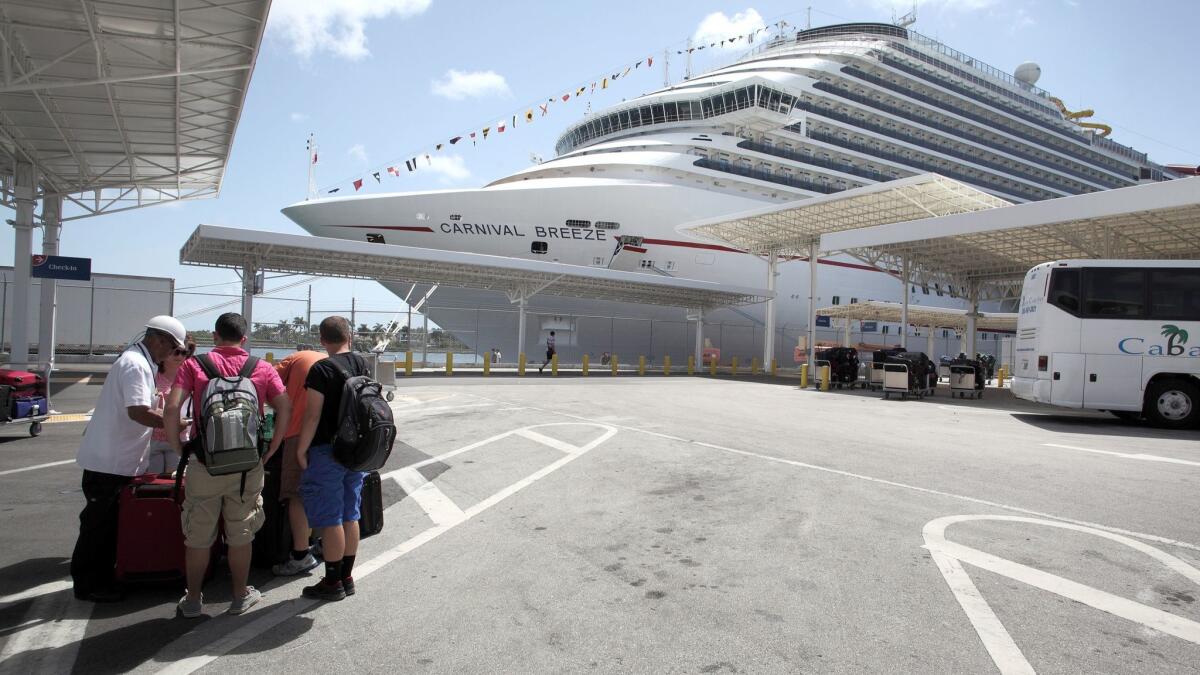Carnival Corp. to screen cruise passengers through Interpol

To increase security on its cruise ships, Carnival Corp. said it will screen its passengers’ travel documents through Interpol, the international policing organization.
Interpol’s General Assembly voted Tuesday to allow Carnival to check the travel documents of its passengers through the organization’s database of lost and stolen travel documents, which contains 69 million records from 175 countries.
The move makes Carnival the first cruise company to add such a security procedure.
“The motivation behind this proactive measure to add an additional layer of security was not driven by a particular incident, but instead by the ongoing goal to be a leader in security and do all we can to keep our passengers, crew and ships safe and secure,” Carnival spokesman Roger Frizzell said.
The approval comes after Carnival, the world’s largest cruise company, with more than 100 ships and nearly 11 million passengers yearly, ran a three-month trial on four of its Princess Cruises ships. During the trial, 34,000 travel documents from Princess passengers were checked through the Interpol system.
Frizzell said the company now will begin to roll out the new screening process on all of its ships, but he did not have an estimate for how long the process could take. Once the system is in place, Carnival will be able to check the travel documents of a passenger against Interpol’s database “almost instantaneously,” he said.
The industry has been condemned in the past by critics who say cruise ship operators have done little to ensure that crimes that take place on international waters are reported to law enforcement agencies and that evidence is collected and preserved.
In response to such criticism, President Obama signed into law in 2010 tougher new rules for reporting crimes at sea, improving ship safety and training ship staff to collect assault evidence. The law mandates that cruise personnel contact the FBI and the Coast Guard as soon as passengers report such serious crimes as homicides, suspicious deaths, missing U.S. nationals, kidnappings or assaults, among other requirements.
To read more about the travel and tourism industries, follow @hugomartin on Twitter.
ALSO
Is Google Fiber going wireless for the last mile?
Take a break from the election and read this story about emoji karaoke
With two minutes and a selfie, anyone could be singing in Chinese in VR
More to Read
Inside the business of entertainment
The Wide Shot brings you news, analysis and insights on everything from streaming wars to production — and what it all means for the future.
You may occasionally receive promotional content from the Los Angeles Times.










